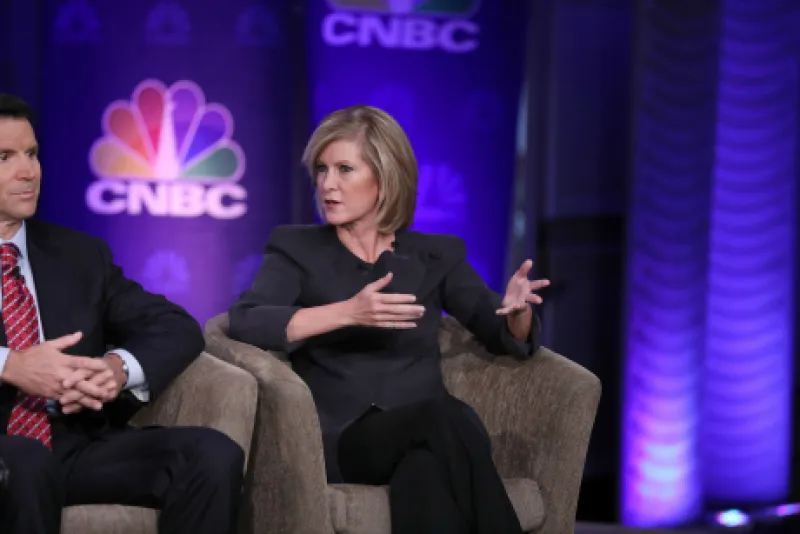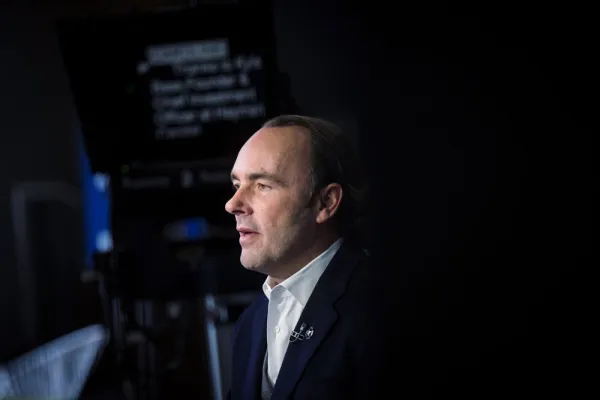Hedge fund returns have been lousy. So why do they still charge so much money?
This question came up over and over at Tuesday’s Delivering Alpha conference in Manhattan, with several panelists at the Pierre hotel lambasting managers for their disappointing performance over the past few years and saying they think the industry is long overdue for a repricing.
Managers have historically charged 2 percent of assets under management, plus a whopping 20 percent cut of returns each year. Fees have come down somewhat — to about 1.75 percent and 18 percent, by some estimates — but they’re still high given the industry’s performance over the past several years. In 2015 the average hedge fund lost 1.12 percent, according to the HFR Fund-Weighted Composite Index, and has underperformed a standard 60–40 portfolio of stocks and bonds for each of the past six years (and is lagging it again this year).
To be fair, fees have moderated at least a little in recent years. And as many managers have pointed out, it’s hardly a fair comparison to set the return of the average hedge fund against the performance of the stock market, as the industry’s harshest critics have done, given that stocks have enjoyed a seven-year bull run (and that being fully exposed to stocks carries a higher degree of risk than many hedge funds are willing to offer). What’s more, a handful of big-name firms — Och-Ziff Capital Management, Tudor Investment Corp. and most recently Caxton Associates — have announced they are cutting fees, although in many cases those fees are still very high, even by hedge fund standards.
But several panelists at Tuesday’s Delivering Alpha conference reiterated that current hedge fund fees are no longer appropriate for the kinds of returns that investors can reasonably expect these days.
“You can’t generate 6 and charge people 2 and 20. I don’t think that’s equitable,” said Stephen Schwartzman, chairman, CEO and co-founder of alternative investment giant Blackstone Group, which manages $344 billion, including $69 billion in hedge fund assets. Mary Callahan Erdoes, chief executive of J.P. Morgan Asset Management, which manages $2.3 trillion in client assets, was even more blunt during a discussion about fees on another panel. “Everybody in this room should lower their fees,” she said.
If there was any unifying theme that came out of the conference, it’s that delivering alpha is harder than it’s ever been, and it is not going to get easier anytime soon. Managers trotted out the usual explanations as to why — extraordinary central bank monetary policies have led to persistently low interest rates and inflated a bond bubble, stocks are overpriced and quite possibly due for a correction, and so on — and several panelists predicted that returns on various asset classes are depressed and will remain so for the foreseeable future.
This talk is hardly new. What’s changed recently is that hedge fund managers themselves are finally admitting that their fees are too high in today’s return environment. Ross Margolies, the founder of New York–based, fundamentally driven long-short equity shop Stelliam Asset Management, said investor complaints about fees are less about the fixed dollar amount these investors are handing over and more about the fact that they are paying such a huge proportion of paltry returns.
“If someone is making double digit returns, I don’t think they’re caring if they are paying 1 to 2 percent,” he said. “If someone is making 3 percent, 1 or 2 percent is a lot of money.”
Earlier this year at the SALT Conference, the hedge fund industry’s annual confab in Las Vegas, managers including such hedge fund brand names as Leon Cooperman of Omega Advisors and Kyle Bass of Hayman Capital Management said it’s finally time for hedge funds to lower their fees in light of drastically reduced performance expectations.
Some change is already happening: A new report from the Alternative Investment Management Association, an industry trade group, suggests that a number of trends are emerging in terms of how hedge fund fees are paid. More managers are instituting so-called clawbacks — common in the private equity industry — in which a portion of fees earned for past performance gains are paid back when the fund loses money (although AIMA says this trend is not yet widespread). Three quarters of the 120 alternative investment fund managers AIMA surveyed said they either offer or are considering offering to cut management fees as their assets under management climb above a certain level.
Most interestingly, about a third of the managers in the survey said they now charge performance fees above a hurdle rate, meaning they won’t levy a performance fee on gains that fall below a fixed percentage or an index-based benchmark. Adam Blitz, chief executive and CIO of Evanston, Chicago–based fund-of-funds firm Evanston Capital, says that while he doubts the 1-in-3 figure is true industrywide, he has seen an increase in recent years in managers implementing hurdle rates, largely because of investor demand.
“Hurdles are inherently fair, and in a lot of cases, the basic fee structure has been set too high, especially on the long-short equity side, for many years,” he says. “It’s hard to justify the old 2-and-20 fee structure for some of these funds, even if performance turns around.” Even setting a low bar, such as 2 percent, can add up over time, he notes. Blitz has put his money where his mouth is: “We’ve had a hard hurdle on our flagship fund right from day one.”
AIMA claims more firms are following suit. Its study found that managers are often willing to work with investors to institute one or more of the provisions in exchange for keeping their money locked up for longer periods of time. This often enables managers in turn to take advantage of more attractive investment opportunities, which Margolies characterized during his panel discussion as “a win-win.” AIMA contends that the increased willingness of managers to be flexible and cut such deals partly explains why they remain popular with institutional investors.
Of course, most of these ideas, while possibly making terms more fair for investors, stop short of actually lowering the sticker price they are expected to pay up front. And that’s exactly the problem many investors say they are facing.
One telling moment that hammers that point home happened during a discussion of fees at Delivering Alpha. When asked if returns coming down means fees will come down too, Stelliam’s Margolies said he thinks the answer is yes. But when asked point blank if that means he’s cut his own fees, Margolies hastily responded — to much laughter — “No, we haven’t.”
Follow Amanda Cantrell on Twitter at @amandakcantrell.






